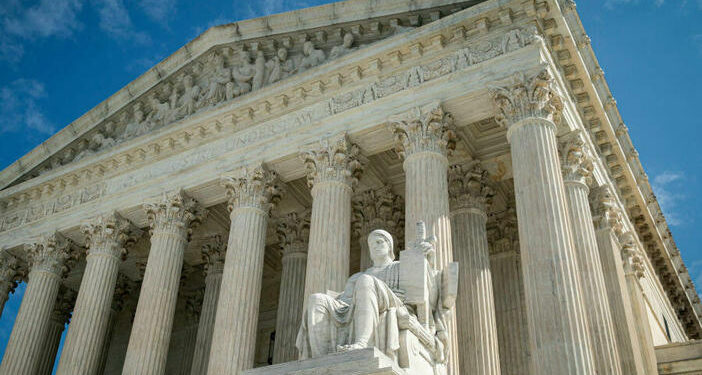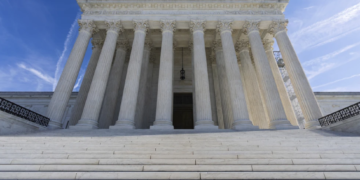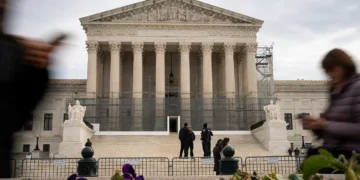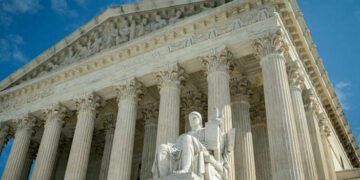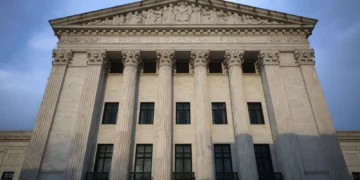May 16, 2025 Story by: Publisher
Supreme Court justices asked government lawyers if limiting injunctions to specific cases would mean only people who can afford lawsuits get protection—creating a “catch‑me‑if‑you‑can” system that could leave millions of U.S.‑born children without citizenship.
With every lower court ruling against the administration’s January 20, 2025 executive order, the justices signaled that the stakes extend far beyond individual plaintiffs—raising profound questions about the rule of law and the fundamental promise of the 14th Amendment.
Background
The case centers on President Trump’s January 20, 2025 executive order (Executive Order 14160) seeking to strip citizenship from U.S.-born children of noncitizen parents—a move that lower courts have repeatedly blocked with nationwide injunctions. Another central issue is whether those injunctions should protect only named plaintiffs or extend to all affected children nationwide.
Key Exchanges
Justice Jackson
- Justice Ketanji Brown Jackson launched the hearing’s sharpest critique, warning that limiting injunctions to individual cases would create “a ‘catch‑me‑if‑you‑can kind of regime,’ where court orders would protect only the individuals in a case, not the millions of Americans who could be impacted.”
- Pressing the point, Jackson added, “I don’t understand how that is remotely consistent with the rule of law.”
Justice Kagan
- Justice Elena Kagan was equally forceful on the order’s merits: “On the merits, you are wrong,” she told government counsel. “The [order] is unlawful.”
- Kagan continued, “It’s up to you to decide whether to take this case to us. If I were in your shoes, there is no way I’d approach the Supreme Court with this case.”
- Kagan emphasized the administration’s string of defeats: “You keep losing in the lower courts. This is not a hypothetical. Every court has ruled against you.”
- She warned of the real‑world impact: “Forcing impacted Americans to file individual lawsuits for citizenship means the ones who can’t afford to go to court, they’re the ones who are going to lose.”
Justice Sotomayor
- Justice Sonia Sotomayor stressed urgency for broad relief: “The court can act quickly if we are worried about those thousands of children who are going to be born without citizenship papers, that could render them stateless.”
- Sotomayor asked, “If we’re afraid that this, or even have a thought that this, is unlawful executive action, that it is Congress who decides citizenship, not the executive—if we believe that, why should we permit those countless others to be subject to what we think is an unlawful executive action?”
Justice Alito
- Justice Samuel Alito offered a dissenting counterpoint on injunctions: he suggested district judges “often get things ‘wrong’ and are vulnerable to disease that makes them believe they are ‘bright and can do whatever I want.’”
Source: Guardian / The Independent / AP News / PBS / The Atlantic


